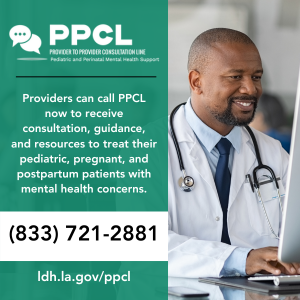CDC has simplified COVID-19 vaccine recommendations for most people including additional doses for certain higher risk populations.
CDC actions follow an earlier recommendation by the U.S. Food and Drug Administration that amended the emergency use authorizations (EUAs) of the Moderna and Pfizer-BioNTech COVID-19 bivalent mRNA vaccines.
Summary of Recommendation Changes
- Most individuals previously vaccinated with a primary monovalent series and who have not received a bivalent booster may receive a single dose of a bivalent.
- Most individuals who have received a single dose of a bivalent vaccine are not currently eligible for another bivalent dose.
- Individuals 65 years and older who have received a single dose of bivalent vaccine may receive an additional dose at least four months after their initial bivalent dose.
- Immunocompromised individuals who have received a bivalent vaccine can receive an additional bivalent vaccine two months following a dose of bivalent vaccine; additional doses may be administered at the discretion of their healthcare provider.
- However, for immunocompromised individuals 6 months through 4 years of age, eligibility for additional doses will depend on the vaccine previously received.
- Most unvaccinated individuals may receive a single dose of a bivalent vaccine rather than multiple doses of the original monovalent mRNA vaccines.
- Children 6 months through 5 years of age who have not been vaccinated can receive a two-dose series of Moderna bivalent (6mo – 5yr) or three-dose series Pfizer bivalent (6mo – 4yr).
- Children who are 5 years of age may receive two doses of the Moderna bivalent vaccine or a single dose of the Pfizer-BioNTech bivalent vaccine.
- Children 6 months through 5 years of age who have received one, two or three doses of a monovalent vaccine can receive one or more bivalent doses depending on how their initial series was completed.
Bivalent Doses Replace Monovalent Doses
- Bivalent Pfizer and Moderna COVID-19 vaccines are now authorized by the FDA for both primary series and booster doses. Monovalent doses are no longer authorized by the FDA.
- Providers should immediately discontinue the use of mRNA monovalent vaccines for primary series. With the exception of the Novavax vaccine, all monovalent Moderna and Pfizer vaccine ordering has now been inactivated in LINKS, Louisiana’s Immunization Information System.
- If a provider has placed an order for mRNA monovalent vaccines prior to today and they have not been received, these orders will not be delivered.
- Providers should reconcile their inventory in LINKS with the removal of the mRNA vaccines.
- This does not include Novavax as it can still be utilized for the primary series.
- Additional information will be provided on disposal of COVID-19 vaccines.
With the authorization, the fact sheets have been updated and consolidated for the Moderna COVID-19 Vaccine, Bivalent and the Pfizer-BioNTech COVID-19 Vaccine, Bivalent. Each vaccine now has one fact sheet for healthcare providers and one fact sheet for recipients and caregivers, rather than different fact sheets for the various authorized age groups.
Dosing Recommendations
See the charts for different age groups for both Moderna and Pfizer vaccines at the end of this message.
- Moderna: pages 3-4
- Pfizer: pages 4-5
Clinical Considerations
CDC’s Interim Clinical Considerations for Use of COVID-19 Vaccines in the United States are expected to be updated soon at this link.
Related Information
- Pfizer-BioNTech COVID-19 Vaccines
- Moderna COVID-19 Vaccines
- COVID-19 Vaccines
- Emergency Use Authorization for Vaccines Explained
- Pfizer EUA Fact Sheet for Providers
- Moderna EUA Fact Sheet for Providers
Reporting Adverse Events
LDH reminds providers to report possible vaccine-related adverse events to the FDA/CDC Vaccine Adverse Event Reporting System (VAERS) at https://vaers.hhs.gov/reportevent.html or by calling 1-800-822-7967.
Any possible severe adverse events (those resulting in hospitalization, death, or persistent disability) should be immediately reported to the LDH Office Public Health (OPH) Infectious Disease/Epidemiology Hotline at 1-800-256-2748.


